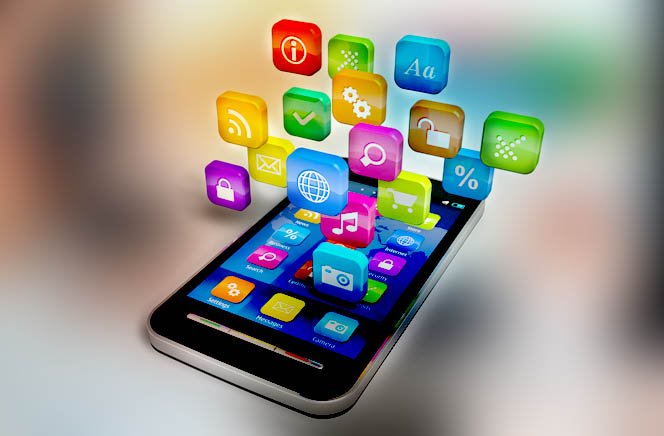In the past decade, mobile apps have revolutionized how we interact with technology. From social networking and banking to shopping and fitness, apps have become essential tools in our everyday lives. With over 6.5 billion smartphone users worldwide, mobile apps are no longer just a convenience—they are a vital part of global communication, productivity, and entertainment. As technology evolves, so does the functionality and impact of mobile applications.
What Are Mobile Apps?
Mobile apps, short for mobile applications, are software programs designed to run on smartphones, tablets, and other handheld devices. They are downloaded through platforms such as the Apple App Store and Google Play Store, providing users with tailored experiences in categories like health, finance, education, travel, gaming, and more.
Apps can be categorized into three types:
-
Native Apps: Developed specifically for one platform (iOS or Android).
-
Web Apps: Run via a browser and adapt to mobile devices.
-
Hybrid Apps: Combine features of both native and web apps.
The Growth of Mobile Apps
The growth of mobile apps has been exponential. In 2023 alone, global consumers spent over $170 billion on mobile apps. Businesses are investing more in app development due to high user engagement and return on investment. Apps are not only profitable but also provide businesses with direct access to customers, allowing for personalization and improved customer service.
Popular apps such as Instagram, WhatsApp, Uber, TikTok, and Spotify have redefined how we connect, travel, and consume content. Mobile gaming, in particular, is one of the fastest-growing industries, with titles like PUBG Mobile and Clash of Clans amassing millions of active users daily.
Key Benefits of Mobile Apps
-
Convenience and Accessibility
Mobile apps bring services and information to users’ fingertips. Whether it’s ordering food, booking a cab, or tracking health, users can perform tasks instantly without using a computer. -
Enhanced User Engagement
Apps provide personalized experiences through push notifications, in-app messaging, and interactive content, keeping users engaged and loyal. -
Speed and Performance
Compared to mobile websites, apps often load faster and work smoother. Many apps also allow offline access to certain features. -
Security and Privacy
With advanced security features like encryption, biometric logins, and multi-factor authentication, mobile apps can offer a high level of safety for transactions and data. -
Data Collection and Analytics
Businesses can track user behavior through app analytics, helping them refine their products and marketing strategies.
Mobile Apps in Everyday Life
-
Health & Fitness: Apps like MyFitnessPal, Fitbit, and Headspace help users track workouts, meals, and mental health routines.
-
Finance: Mobile banking apps such as Revolut, PayPal, and Cash App simplify money management, allowing transfers, budgeting, and investing from anywhere.
-
Education: Platforms like Duolingo, Khan Academy, and Coursera offer mobile learning experiences that are flexible and accessible.
-
Shopping: Apps like Amazon, eBay, and Etsy allow users to browse, buy, and track products seamlessly.
-
Travel: Google Maps, Airbnb, and Booking.com make navigation, accommodation, and travel planning easier and more efficient.
Challenges of Mobile Apps
Despite their benefits, mobile apps face several challenges:
-
Security Risks: Poorly developed apps may be vulnerable to data breaches and malware.
-
Device Compatibility: Ensuring that apps work well across different devices and screen sizes can be a complex task for developers.
-
App Fatigue: With millions of apps available, users often uninstall apps they don’t use frequently, making retention difficult.
-
Constant Updates: Apps require regular updates to fix bugs, add features, and stay compatible with new OS versions.
The Future of Mobile Apps
The future of mobile apps lies in innovation and integration. Here are some key trends:
-
Artificial Intelligence (AI) and Machine Learning
AI is powering smarter apps—from virtual assistants like Siri to personalized shopping and predictive text input. -
Augmented Reality (AR) and Virtual Reality (VR)
Apps like IKEA Place use AR to let users visualize furniture in their home. AR/VR will continue to enhance gaming, shopping, and education. -
5G Technology
The rollout of 5G will significantly improve app performance, enabling real-time gaming, streaming, and augmented experiences. -
Wearable Integration
Apps will increasingly sync with wearable devices like smartwatches and fitness trackers, enhancing health and lifestyle functionalities. -
Super Apps
Inspired by Asian markets, super apps like WeChat offer messaging, payments, shopping, and more within a single platform—this model is expected to grow globally.
Conclusion
Mobile apps are reshaping the digital landscape in unprecedented ways. From how we communicate to how we work, shop, and stay healthy, apps have made life more connected and convenient. As mobile technology advances, we can expect even more intelligent, personalized, and integrated app experiences.
Whether you’re a business aiming to reach customers or a user seeking to simplify daily tasks, mobile apps are an indispensable part of the modern world. The innovation behind them continues to drive the evolution of the digital economy, promising exciting developments for years to come.


















